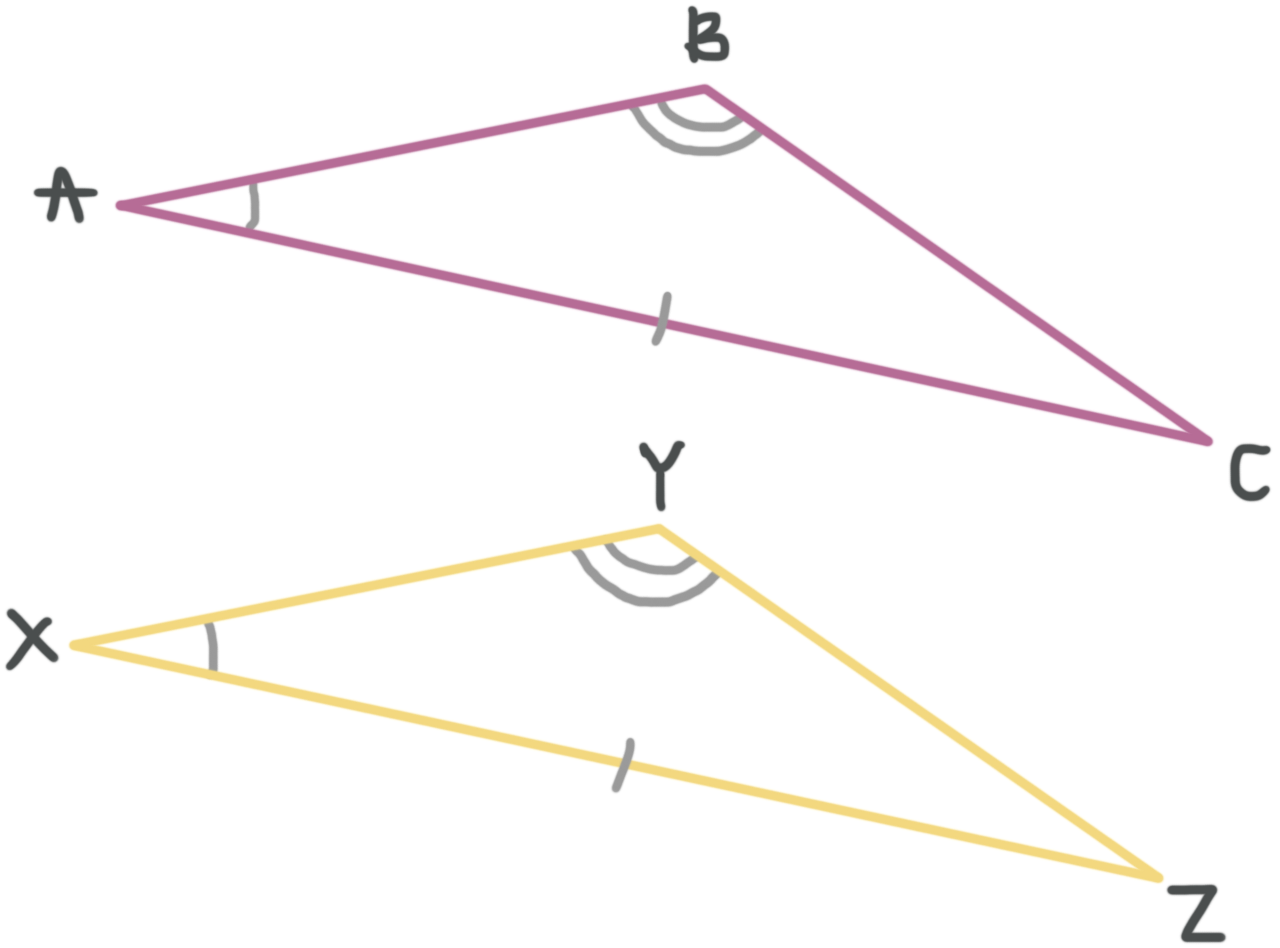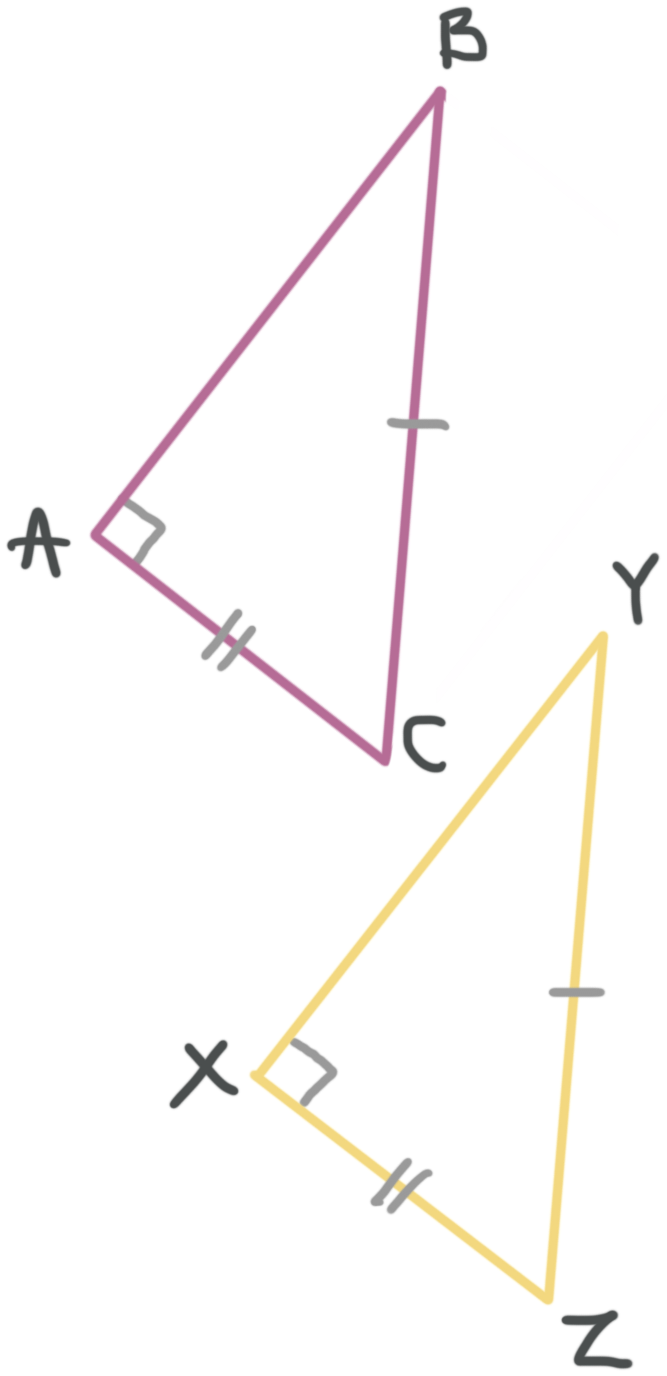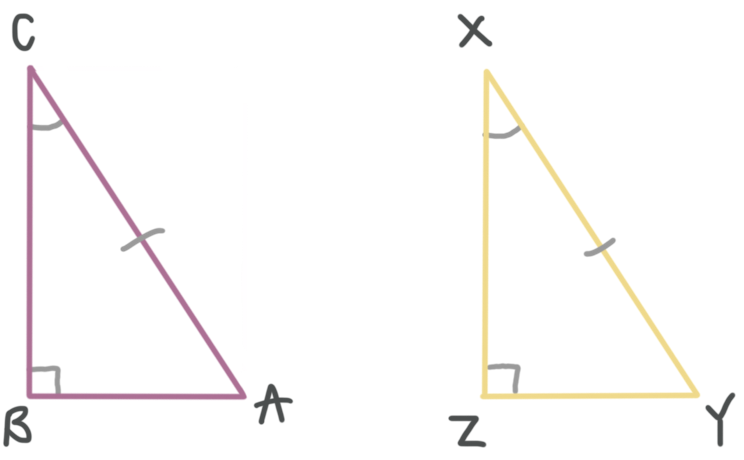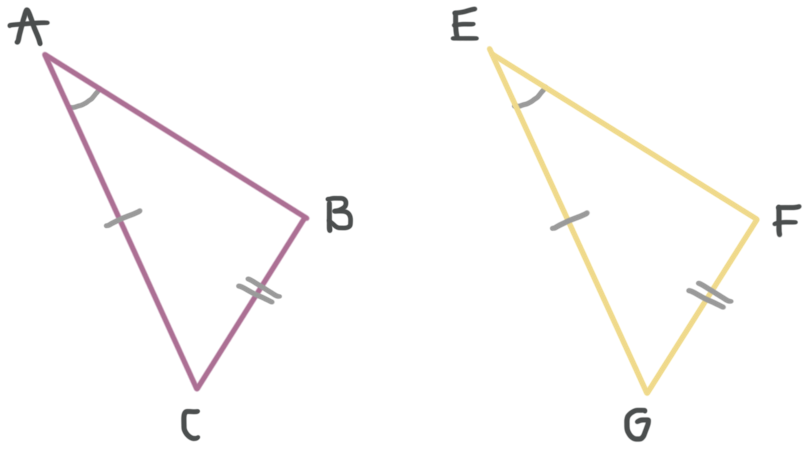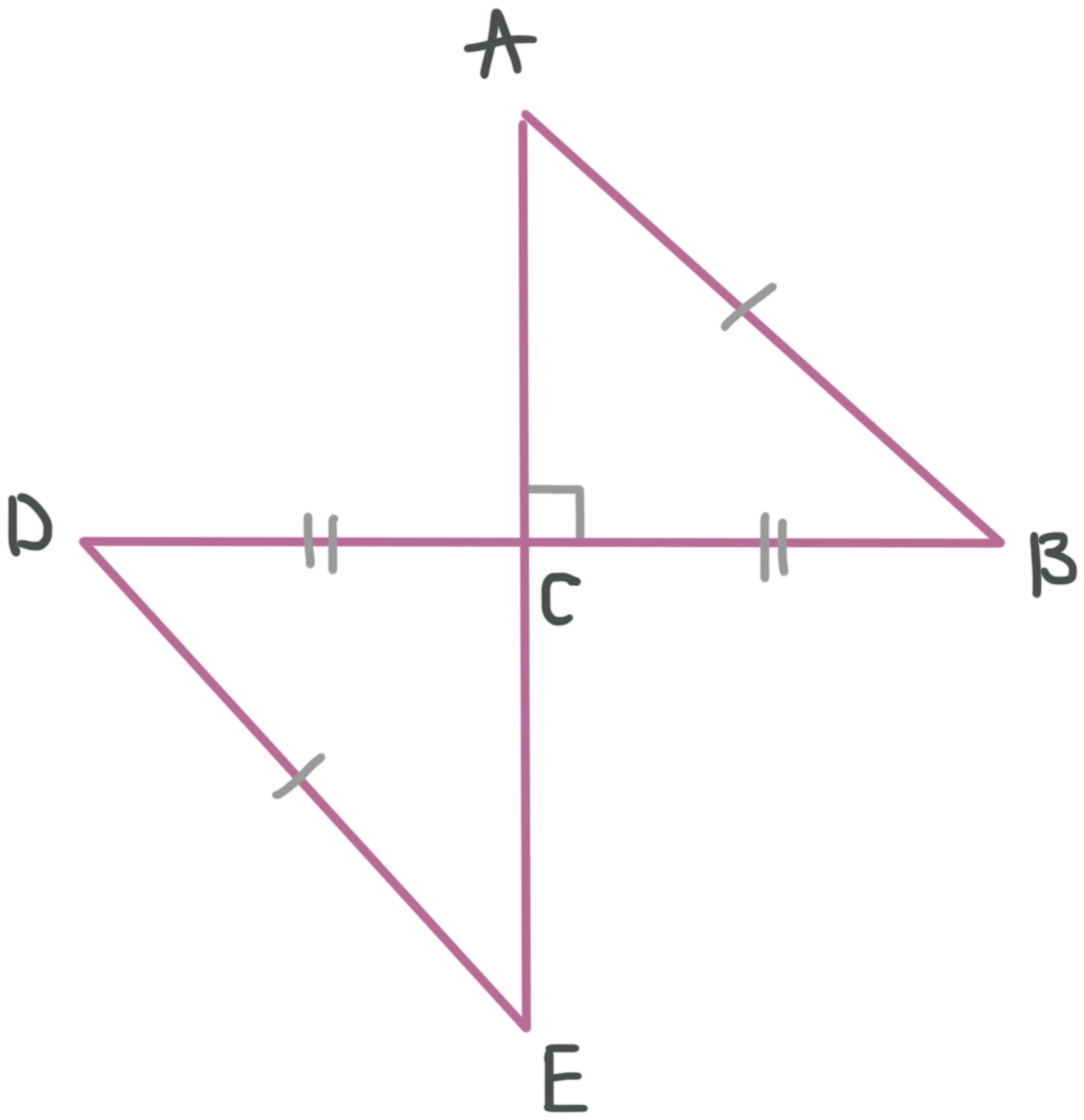Triangle congruence with AAS, HL
AAS and HL triangle congruence theorems
In this lesson we’ll look at how to use two more triangle congruence theorems, called angle, angle, side (AAS) and hypotenuse, leg (HL), to show that triangles, or parts of triangles, are congruent to one another.
Hi! I'm krista.
I create online courses to help you rock your math class. Read more.
Congruent triangles
A pair of congruent triangles have exactly the same size and shape. That means that all pairs of sides are the same length and all pairs of angles have the same measure.
You know that triangles are congruent to one another if the pairs of sides and angles are congruent. The good news is you don’t have to show that all six pairs match up. There are some triangle theorems that you can use as a short cut to prove two triangles are congruent.
Angle, angle, side (AAS)
If you can show that two angles of a triangle pair are congruent, and that one non-included side is also congruent across the triangle pair, then you’ve proven that the triangles are congruent by “angle, angle, side” (AAS), without needing to check the third angle or the other two sides. In the figure below, ???\triangle ABC\cong \triangle XYZ??? by angle, angle, side.
Hypotenuse, leg (HL)
This theorem can only be used with right triangles, so in order to use “hypotenuse, leg” to prove that a pair of triangles are congruent, you need to know before you even begin that both triangles are right triangles. Then you need congruent hypotenuses and a pair of congruent legs. For instance, in the figure below, ???\triangle ABC\cong \triangle XYZ??? by hypotenuse, leg.
Be careful
Whenever you state that two triangles are congruent, you must match the corresponding parts when you name the triangles. The letters will not always be in alphabetical order. Write the names so that the pairs of sides and angles that are congruent to each other are in the same places.
For instance, in the figure above, it would be correct to say that ???\triangle ABC\cong \triangle XYZ??? because angles ???A??? and ???X??? are congruent, angles ???B??? and ???Y??? are congruent, and angles ???C??? and ???Z??? are congruent. But it would be incorrect to say ???\triangle ABC\cong \triangle YZX???, since this statement doesn’t list corresponding angles in the same order.
How to prove that two triangles are congruent using AAS (angle angle side), or HL (hypotenuse leg) congruence theorems
Take the course
Want to learn more about Geometry? I have a step-by-step course for that. :)
How can you prove that the two triangles are congruent?
Example
Can you prove that the two triangles are congruent? If so, how?
Let’s write down what we know.
???\angle ZXY\cong \angle BCA???
???\overline{XY}\cong \overline{CA}???
???\angle XZY=90{}^\circ???
???\angle CBA=90{}^\circ???
Because both ???\angle XZY=90{}^\circ??? and ???\angle CBA=90{}^\circ???, we can also say
???\angle XZY\cong \angle CBA???
Therefore, the triangles are congruent by angle, angle, side.
Let’s try two more.
Whenever you state that two triangles are congruent, you must match the corresponding parts when you name the triangles. The letters will not always be in alphabetical order.
Example
Can you prove that the two triangles are congruent? If so, how?
Here’s a case where it might be tempting to use hypotenuse, leg because we have two congruent sides across a pair of triangles. Unfortunately, since the right angle isn’t indicated in either triangle, we don’t know for sure that these are right triangles, even though they look like they could be.
We have side, side, angle but that’s not a triangle congruence theorem, so we don’t have a way to prove that these triangles are congruent without finding out more information.
Let’s do the last example.
Example
Can you prove that the two triangles are congruent? If so, state how and write the congruency statement.
We know that ???\angle ACB\cong \angle ECD??? because they are vertical angles. Which means that because ???\angle ACB=90{}^\circ??? then ???\angle ECD=90{}^\circ??? as well. This means that both triangles are right triangles.
???\overline{ED}??? is the hypotenuse of triangle ???\triangle EDC??? and ???\overline{AB}??? is the hypotenuse of triangle ???\triangle ABC???. According to the diagram, ???\overline{ED}\cong \overline{AB}???, so the hypotenuses are congruent. We also have a pair of congruent legs because ???\overline{DC}\cong \overline{BC}???.
So ???\triangle ABC\cong \triangle EDC??? by hypotenuse, leg.



